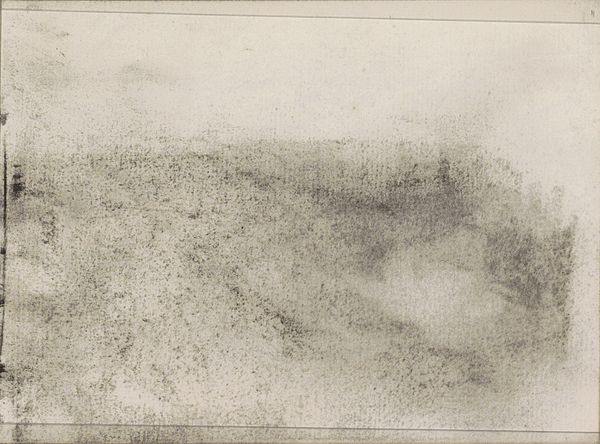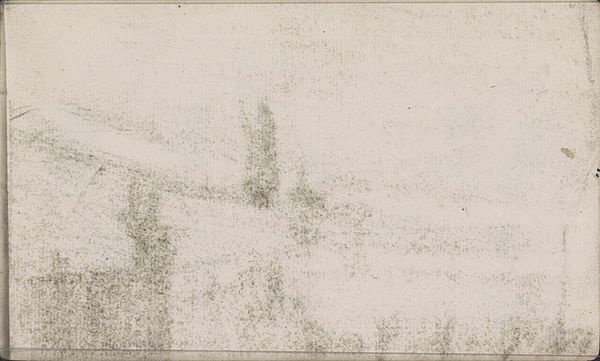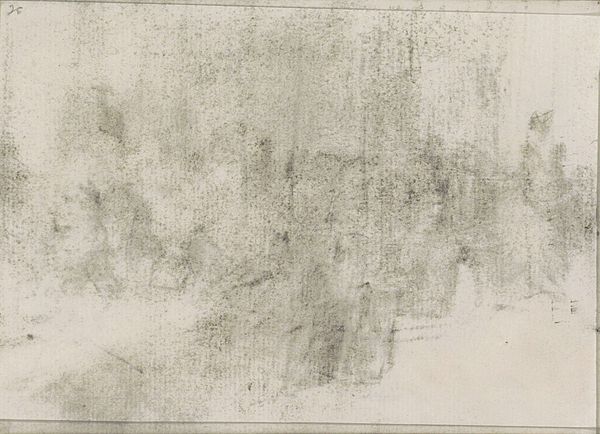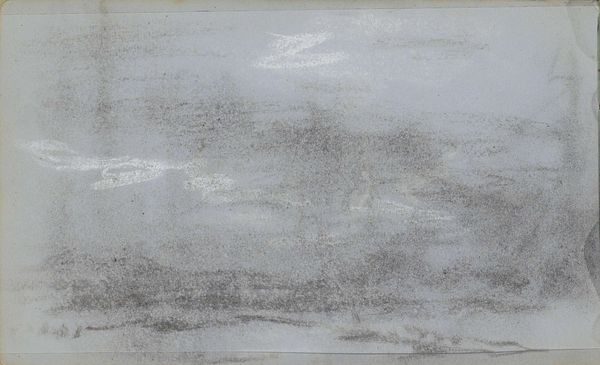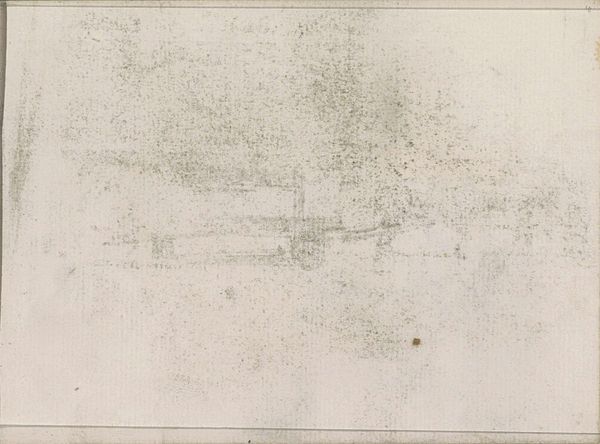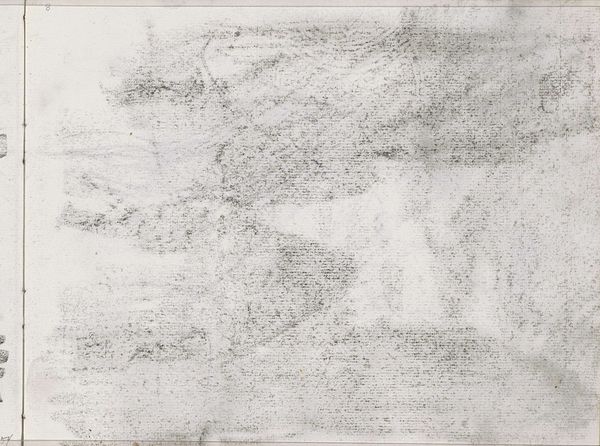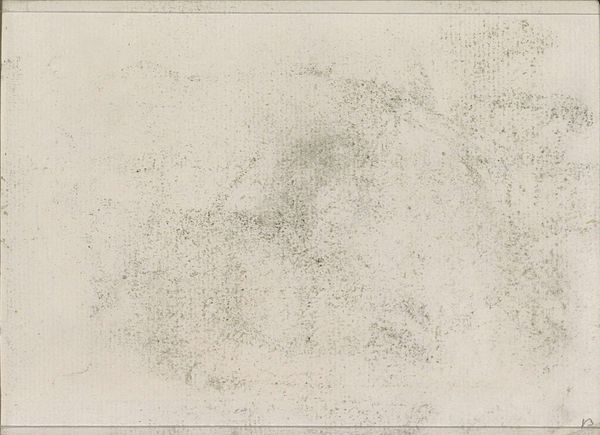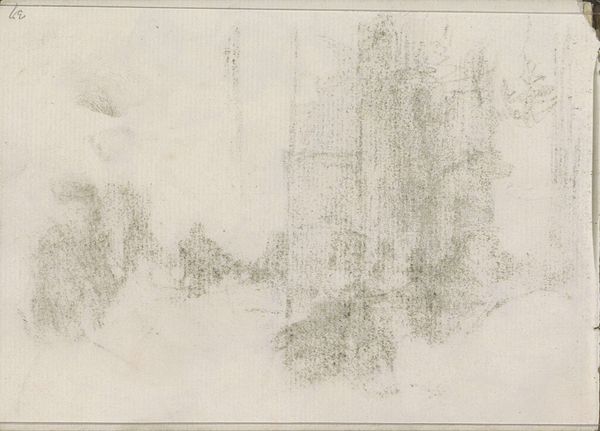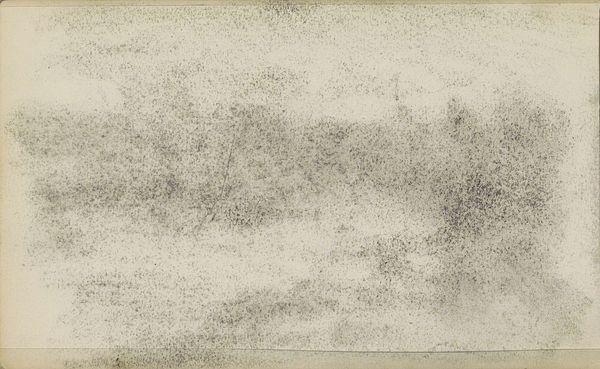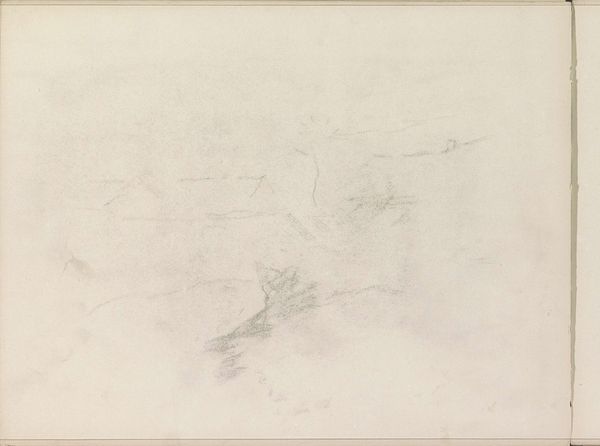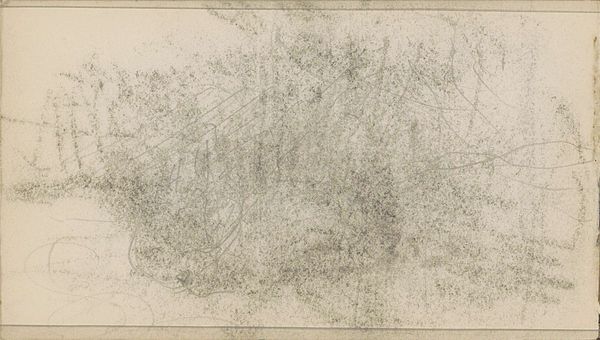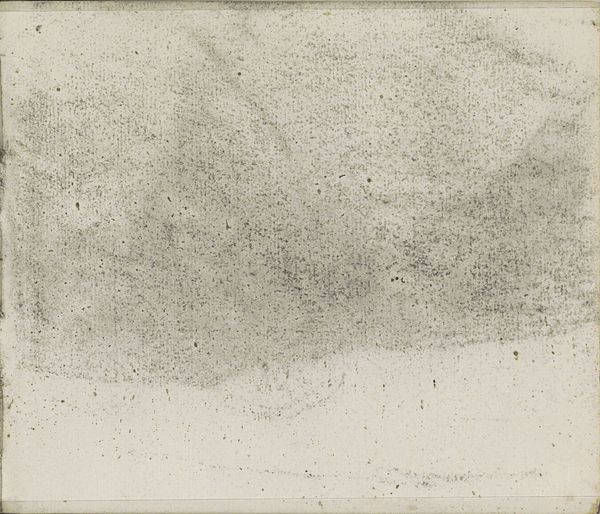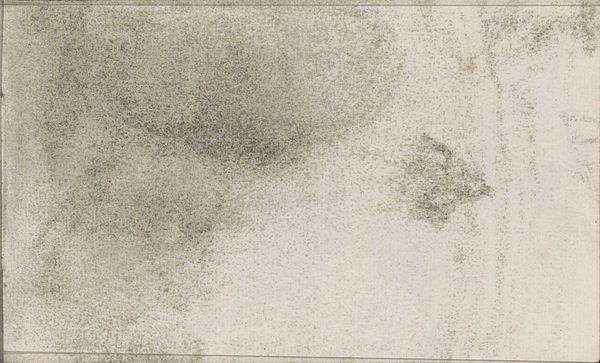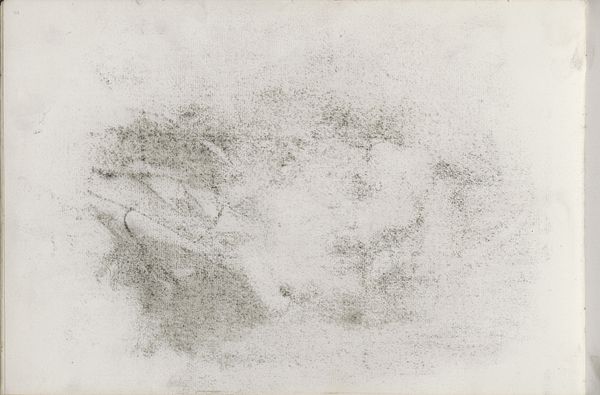
Copyright: Rijks Museum: Open Domain
Curator: Looking at this subtle landscape, it’s difficult to believe it's by Isaac Israels. Editor: A landscape it is, yes. It seems veiled or muted, an echo more than a statement. Somber. Curator: Israels created this pencil sketch on paper somewhere between 1886 and 1903, as part of a larger collection of drawings. It's curiously titled "Abklatsch van de krijttekening op pagina 46"—which translates to "rubbing of the chalk drawing on page 46". We have it here at the Rijksmuseum. Editor: The title makes you wonder what the original chalk drawing was. And why Israels chose to capture it this way. Was it an attempt to replicate texture? Note the almost uniform graininess. There's a deliberate aesthetic choice in the lack of stark lines. It is almost like he's more invested in tone rather than form. Curator: That aligns with Israels’ Impressionistic approach, although his paintings are known for bold colors and confident strokes. This sketch feels preparatory. He might have been experimenting with conveying atmospheric effects. Consider the time: impressionism was thriving and heavily debated. Editor: The scale too is significant. Its intimacy contrasts starkly with what would later become characteristics of Impressionism as an assertive movement. There’s an inherent quietness; an unassuming perspective from within its time. Almost a whisper amongst its contemporaries shouting on canvas. Curator: It does offer a glimpse into his artistic process, stripping away the performative aspects. This gives the viewer an immediate view to the way the artist thought through problems. It does make me wonder how societal debates might affect something this simple, a rubbing almost without image or depth. Editor: And yet it carries so much weight. Israels’ rendering gives us both what is materially represented, along with a sense of a place between the subjective experience of artist and nature as well. Curator: Precisely, there's something very compelling about its modesty and the intimate look into Israels' way of processing the landscape, no matter what context or debate might have occurred.
Comments
No comments
Be the first to comment and join the conversation on the ultimate creative platform.
